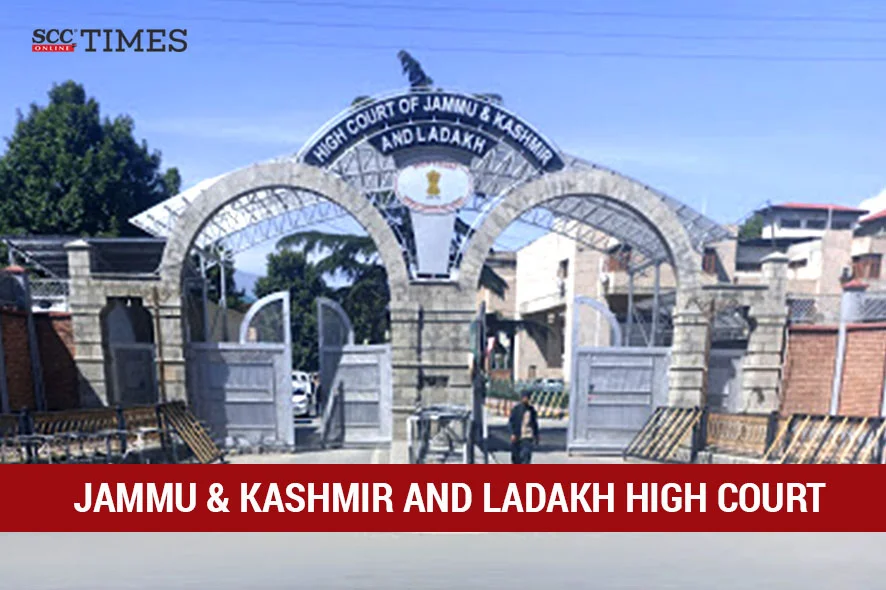Jammu and Kashmir High Court: In a petition challenging the detention order issued by the District Magistrate, Kathua in order to prevent the petitioner from acting in a manner prejudicial to public order, a single-judge bench of Sindhu Sharma, J., quashed the order as the detention order was deemed unsustainable due to procedural lapses, specifically the failure to inform the petitioner of his right to make a representation and to provide an explanation in a language he understands.
The petitioner contended that the detention order was issued mechanically, without proper application of mind, and lacks sufficient grounds to justify that his activities threaten public order. The petitioner argued that he was not provided with all relevant materials or informed of his right to make a representation, thereby infringing on his procedural safeguards. Additionally, the petitioner argued that the grounds of detention were not explained to the petitioner in a language he understands, nor were translated copies provided, hindering his ability to make an effective representation.
However, the respondents argued that the petitioner is a habitual criminal whose activities were prejudicial to public order. It was contended that the detaining authority examined the dossier and was subjectively satisfied that detention was necessary. It was stated that all materials relied upon were furnished to the petitioner, and petitioner’s rights to make a representation were observed. It was further contended that the grounds of detention were explained to the petitioner in the language he understands, and statutory requirements were fulfilled.
The main issues are —
-
Whether the detaining authority’s failure to inform the petitioner of his right to make a representation before the Detaining Authority violates his constitutional rights?
-
Whether the petitioner’s inability to make an effective representation due to insufficient explanation of the grounds of detention in a language he understands constitutes a violation of his rights under Article 22(5) of the Constitution of India?
The Court found that the petitioner was not properly informed of his right to make a representation before the Detaining Authority, which constitutes a violation of Article 22(5) of the Constitution of India and Section 13 of the Jammu and Kashmir Public Safety Act, 1978.
“Service of grounds is a very precious constitutional right where the grounds were in a language not known to the petitioner and unless the same are fully explained to the petitioner in language he understands or translate the same, it would vitiate the detention.”
The Court noted that the petitioner was not provided with translated copies of the grounds of detention or a clear explanation in a language he understands and this failure to comply with constitutional safeguards vitiates the detention order. The Court further relied on State of Maharashtra v. Santosh Shankar Acharya, (2000) 7 SCC 463, Chaju Ram v. State of J&K, (1970) 1 SCC 536 and Raziya Umar Bakshi v. Union of India, 1980 Supp SCC 195, where the Supreme Court emphasised on the importance of explaining grounds of detention in a language the detenu understands.
In light of above-mentioned violations, the Court quashed the detention order dated 23-02-2024 and directed the respondents to release the petitioner from custody forthwith, provided he is not required in any other case.
[Makhan Din v. UT of J&K, 2024 SCC OnLine J&K 619, Decided on 05-08-2024]
Advocates who appeared in this case :
Mr. A.P. Singh, Advocate with Mr. Nikhil Verma, Counsel for the Petitioner/Appellant
Mr. Sumeet Bhatia, G.A., Counsel for the Respondents




